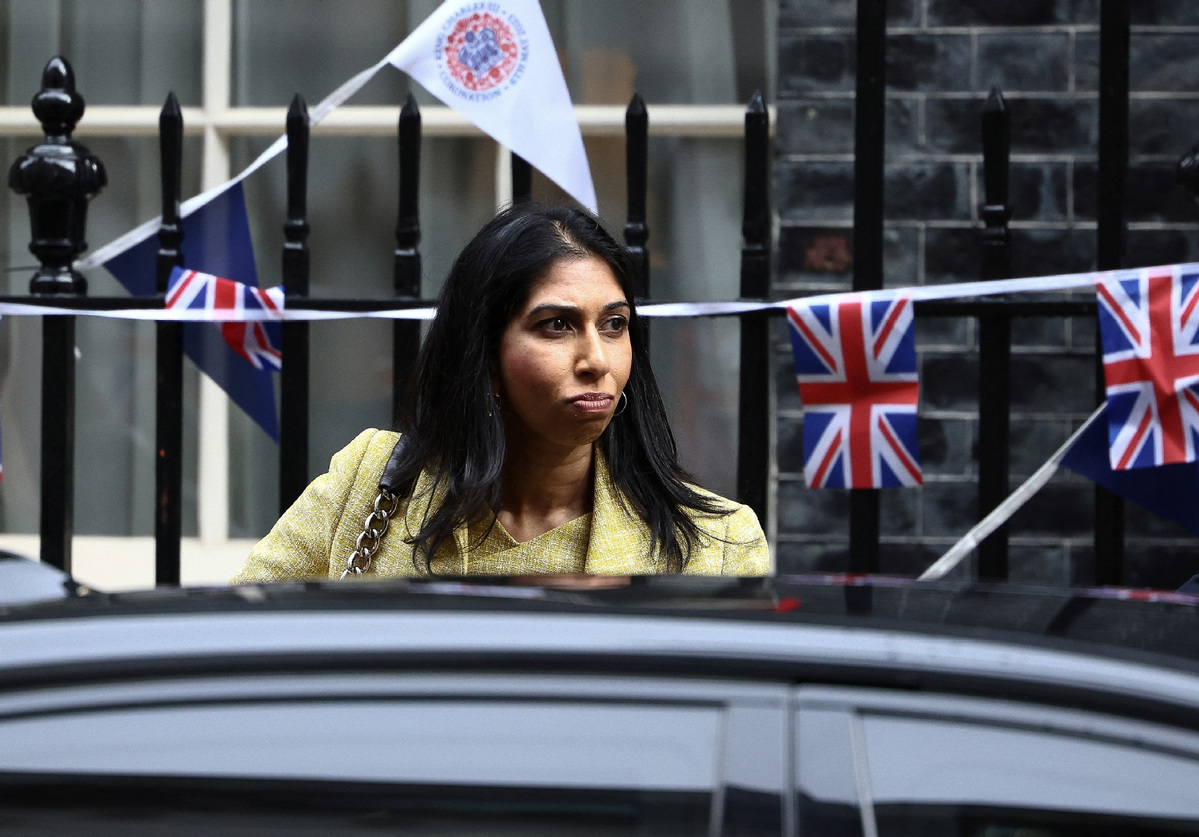UK calls for additional controls on immigration


The United Kingdom must not "forget how to do things for ourselves "and train the people it needs to fill job vacancies, rather than rely on immigrants to take the roles, the country's Home Secretary Suella Braverman has said.
With figures to be published soon expected to show that net migration hit a record high last year, Braverman, who has been one of the most vocal supporters of tighter controls on immigration to the UK, told the National Conservatism Conference that the government needs to stand by its pledge to reduce migrant numbers.
Braverman previously served as home secretary in the brief reign of former prime minister Liz Truss last fall, before resigning over a data protection breach, but in her resignation letter she made a point of saying she had "serious concerns about this government's commitment to honoring manifesto commitments, such as reducing overall migration numbers and stopping illegal migration".
Reappointed by Truss's successor Rishi Sunak, she has maintained her strong stance on the issue, particularly through highly controversial plans to send failed asylum-seekers to Rwanda, and reinforced that position with this speech.
"It's not xenophobic to say that mass and rapid migration is unsustainable in terms of housing supply, service and community relations," she said.
Braverman was a high-profile supporter of Brexit, despite having made use of the European Union's Erasmus international education exchange program to study at the prestigious Sorbonne University in Paris.
Braverman had "voted and campaigned for Brexit because I wanted Britain to control migration so that we all have a say on what works for our country", she said in the speech.
"We mustn't forget how to do things for ourselves… there is no good reason why we can't train up enough HGV(heavy goods vehicle) drivers, butchers or fruit pickers. Brexit enables us to build a high-skilled, high-wage economy that is less dependent on low-skilled foreign labor."
Earlier this month, the ruling Conservative Party suffered substantial losses across the country in local elections, which many observers interpret as being as much of a public judgement on national politics as it is about issues at the local level.
With a general election expected at some point in the next 18 months, those results have left the Conservatives looking at what they need to do to win back votes, and this speech from such a high-profile member of the government would suggest they are going to double down on immigration in the hope it is a potential vote-winner.

































